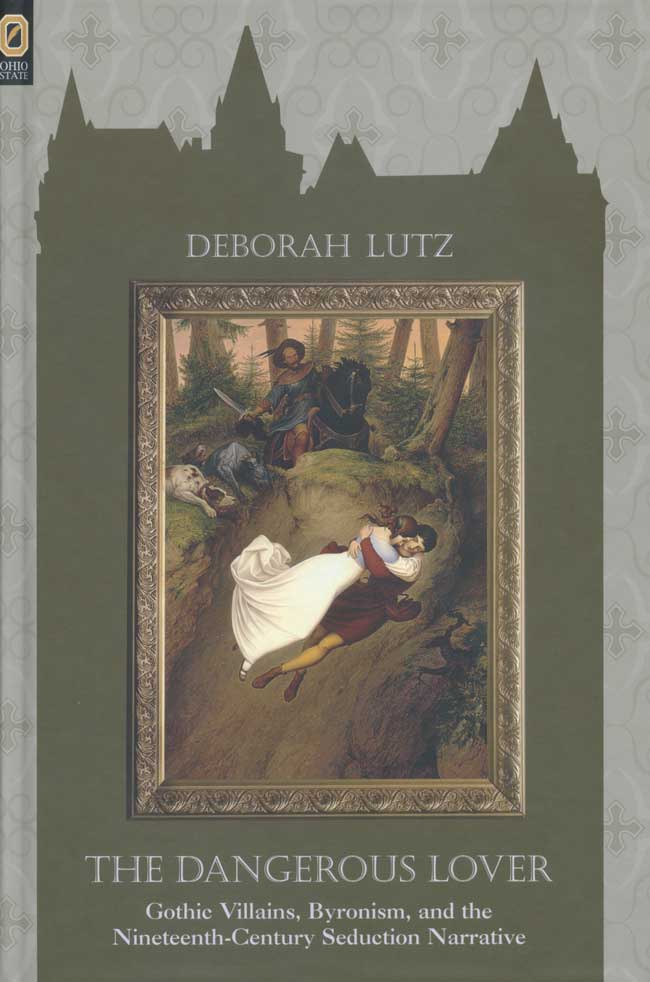The Dangerous LoverGothic Villains, Byronism, and the Nineteenth–Century Seduction NarrativeDeborah Lutz |
 8/07/06 Fiction/Romance/General; Literary Criticism/Gothic & Romance 136 pp. 6x9  $44.95 cloth 978-0-8142-1034-5 Add cloth to shopping cart $17.95 paper 978-0-8142-5286-4 Add paper to shopping cart Shopping Cart Instructions Review/Change Shopping Cart & Check-out | |||
|
“Deborah Lutz’s The Dangerous Lover examines one of the nineteenth-century permutations of gothicism, focusing on the phenomenon of longing as it is manifested in a variety of distinctive nineteenth-century British literary and cultural types. Lutz notes that the figure of ‘the dangerous lover’ has historically stood at the margin of literary history, occupying a position that parallels the position he (or, less often, she) occupies in fiction, where this lover stands partially concealed by darkness or simply by being kept ‘offstage’ for much of the time. . . . The Dangerous Lover offers a thought-provoking examination of this aspect of the romantic and post-romantic gothic and its persistence in our contemporary world.” —European Romantic Review “This is an ambitious project . . . . Its argument is elegant and often lyrical, making it a fascinating and highly enjoyable read. Lutz has a writing style to be admired and envied, and there is no doubt that this book is an excellent addition to studies of the novel of romance and to studies in the gothic.” —The Oscholars “This is a stimulating and original book. Lutz is a compelling writer, persuasive, often epigrammatic, and sometimes stirring in her evocations of existential yearning.” —Rachel M. Brownstein, City University of New York The dangerous lover has haunted our culture for over two hundred years; English, American, and European literature is permeated with his erotic presence. The Dangerous Lover takes seriously the ubiquity of the brooding romantic hero—his dark past, his remorseful and rebellious exile from comfortable everyday living. Deborah Lutz traces the recent history of this figure, through the melancholy iconoclasm of the Romantics, the lost soul redeemed by love of the Brontës, and the tormented individualism of twentieth-century love narratives. Arguing for this character’s central influence not only in literature but also in the history of ideas, this book places the dangerous lover firmly within the philosophy of Martin Heidegger, the Modernism of Georg Lukács, and Roland Barthes’s theories on love and longing. Working with canonical authors such as Ann Radcliffe, Charles Maturin, Lord Byron, Charles Dickens, George Eliot, and Oscar Wilde, and also with non-canonical texts such as contemporary romance, The Dangerous Lover combines a lyrical, essayistic style with a depth of inquiry that raises questions about the mysteries of desire, death, and eroticism. The Dangerous Lover is the first book-length study of this pervasive literary hero; it also challenges the tendency of sophisticated philosophical readings of popular narratives and culture to focus on male-coded genres. In its conjunction of high and low literary forms, this volume explores new historical and cultural framings for female-coded popular narratives. Deborah Lutz is assistant professor of English at Long Island University, C. W. Post Campus. | ||||

